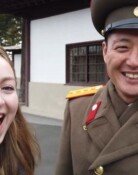How long Kim Jong Un can remain in power?
How long Kim Jong Un can remain in power?
Posted July. 22, 2015 00:49,
High ranking North Korean defectors say that since North Korean leader Kim Jong Un has executed Jang Sung Taek, high-ranking officials are fearing over who will be the next victim. With young Kim having taken the realm, shift of generations is fast being carried out in state-owned institutions. According to National Intelligence Services report to National Assembly last week, 30 percent of party executives and 40 percent of military executives have been replaced.
A Workers` Party official who defected to South Korea told CNN that Kim Jong Un will lose power in three years as his capricious leadership and fear politics shake his key supporter base. Professor Kang Myung-do who interviewed high ranking North Korean defector officials also said, The Kim Jong Un regime will not last long. However, the North had endured famine and is a country where power succession has continued in a stable manner even after the death of previous leaders.
Some critics say Kim Jong Un is controlling the situation well. They say that Kim isnt killing high ranking executives indiscriminately, but was taught from his father how to maintain monopoly and see through people attempting to seize power. To retain power, Kim appears to have judged that any seed of resistance should be cut out from the root to get rid of source of trouble, so that officials can obey him without any argument.
While high-ranking officials are trembling with fear, ordinary people are feeling the catharsis as Kim trims rotten executives out and replace with new people. While a scenario can be imagined where key powers who complain about Kim stage a coup, this is unlikely to succeed in a situation where North Korean people are embracing Kims politics. Whereas fear and anxiety are prevalent among high-ranking officials, the livelihoods of ordinary people have improved since Kim came to power.
In fact, food shortage has eased through invigoration of cultivation of vegetable gardens and marketplaces. Last year the North suffered severe drought but grain production didnt decline. According to U.N. Food and Agriculture Organization, food yields in the last three years increased sharply, but rice production declined 10 percent due to rainfall shortfall. Nevertheless, yields of corm and potatoes increased 17 percent and 16 percent, respectively, making up for the losses.
Food production was maintained mainly due to cultivation of vegetable gardens. The smallest unit for farms has 10 to 15 people. The North divided this unit again and had three to five people cultivate vegetable gardens, mandating that 50-70 percent of production is dedicated to the country while farmers take 30 to 50 percent. This is one step behind Chinas farmland reform. The three to five people cultivating the gardens are neighbors or relatives living together in the same village. The country didnt distribute the gardens based on farm households because it couldnt allocate cows and far machinery to all households.
Since there are higher incentives for vegetable gardening than dedicating productions from cooperative farms to the nation and receiving rations, production increased. This system started under the Kim Jong Il regime but was promoted full-fledged under Kim Jong Un. In February last year, he issued a statement that read, Lets hail the socialist farm system and innovate farm production, where he added, In distribution, equalization doesnt go in line with the principle of socialist distribution, and is a damage as it declines farmers production efforts. He had a different awareness on market economy compared to his father.
Grains imported from China are also actively traded in the marketplaces. Unit trading companies are also importing from China food and staples. Kim Jong Un is fostering sports and is building theme parks and amusement parks around the country. This contrasts with his fear politics against officials.
The Norths diplomatic relations with China are at their worst situation since the execution of Jang. Kim Jong Un didnt attend the Victory Day parade in Russia, and is certain not to attend Chinas Sept. 3 celebrations of the 70th anniversary of the end of World War II. Nevertheless, China wont abandon fully North Korea considering its strategic value. China appears to be supplying crude oil to the North despite international sanctions.
Kim Jong Un is still very young. Though health problems will rise if extreme obesity isnt improved, it is still unlikely to induce any severe disease in the short term. Though one cant accurately predict his political life span, Kim can prevent failing diplomatic and security policies if he respond them with a long term perspective.







